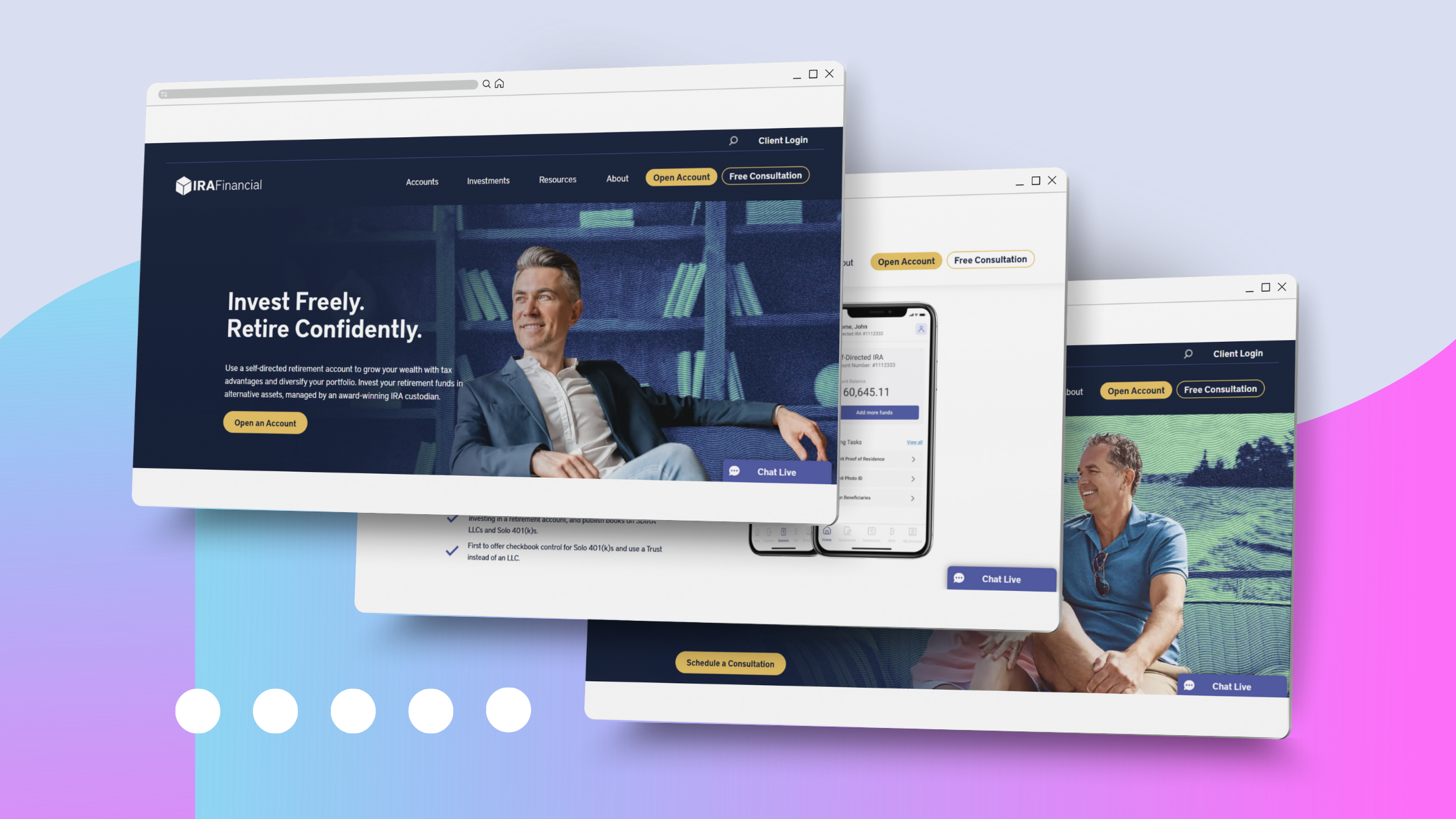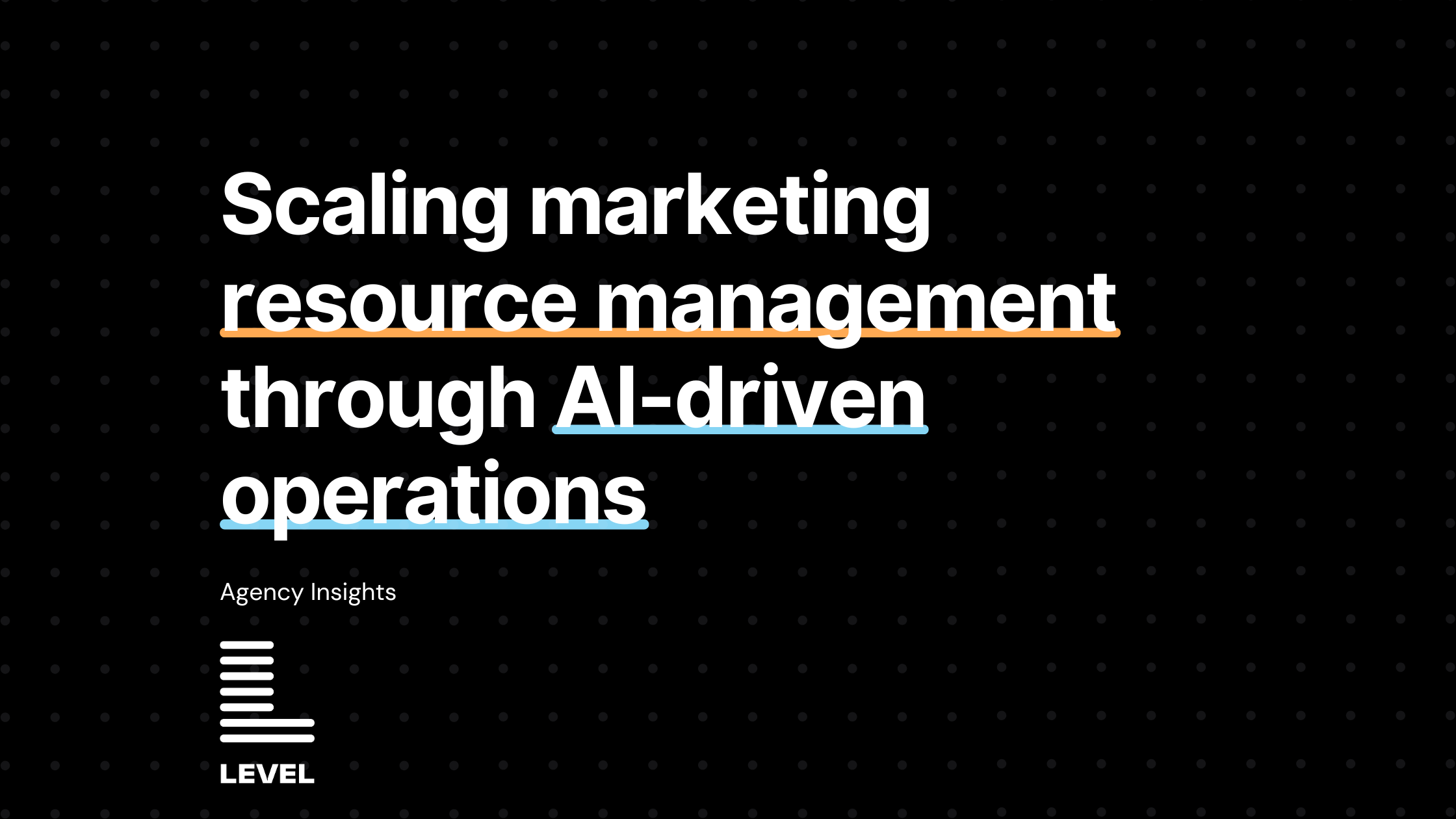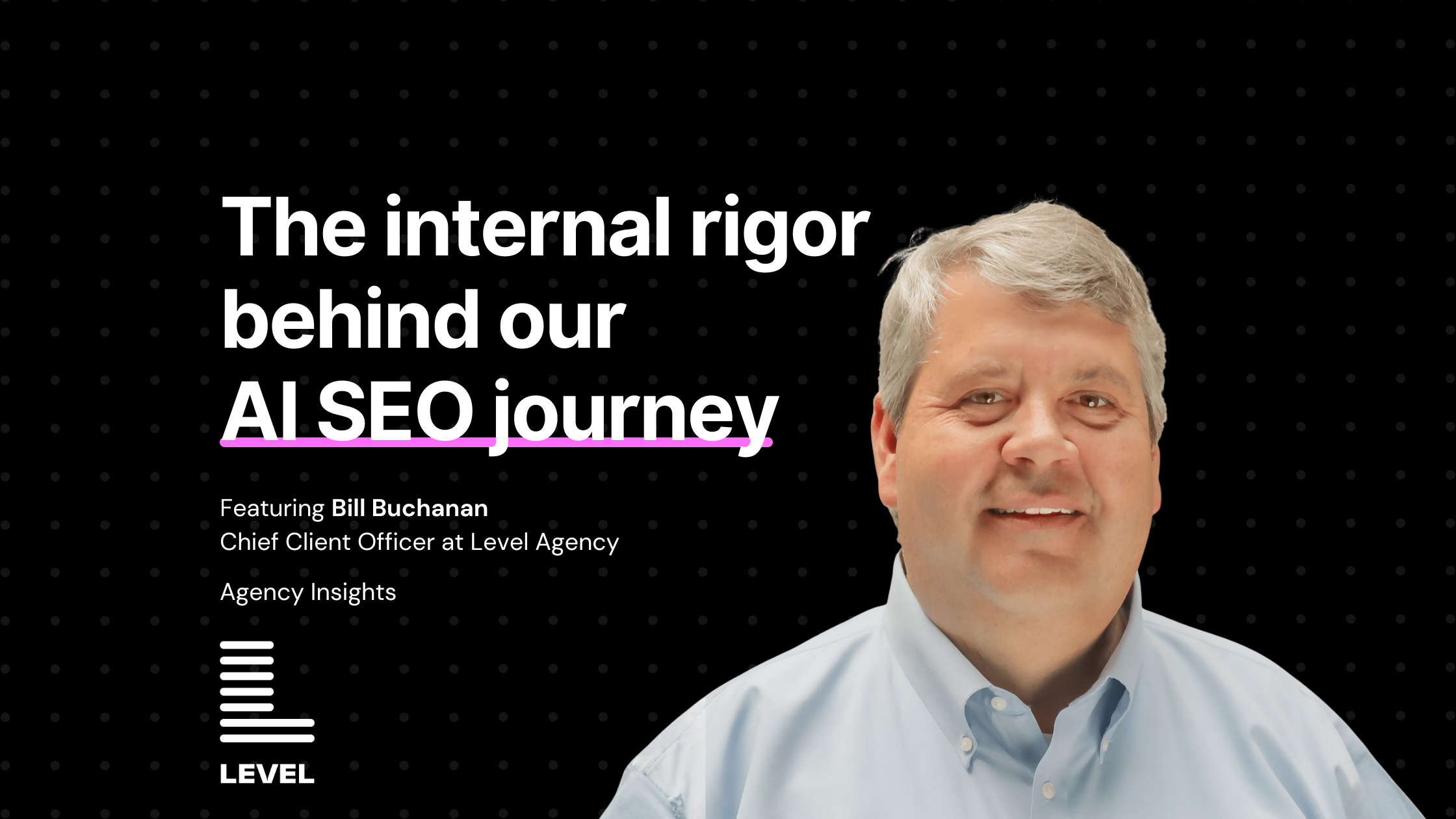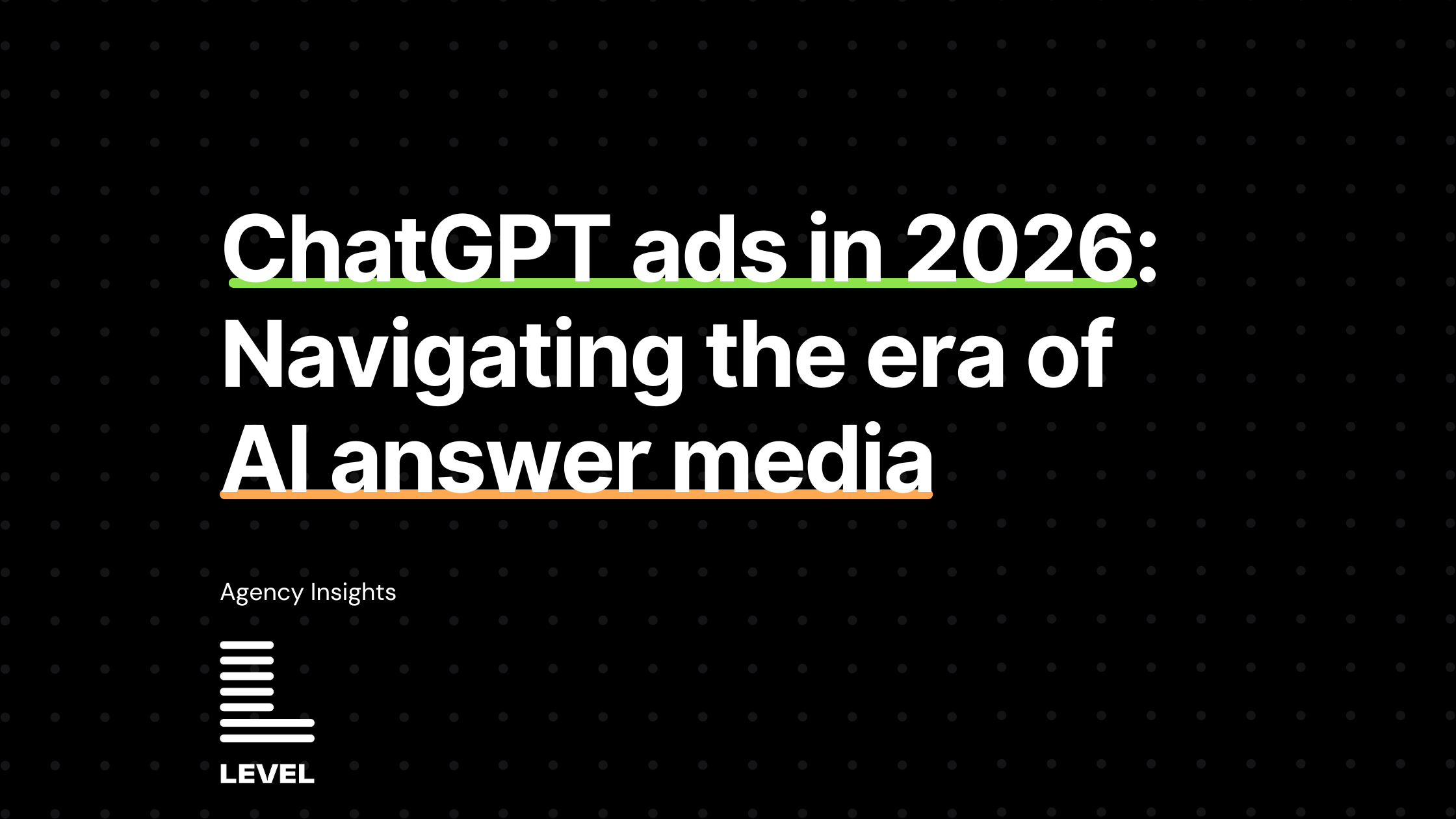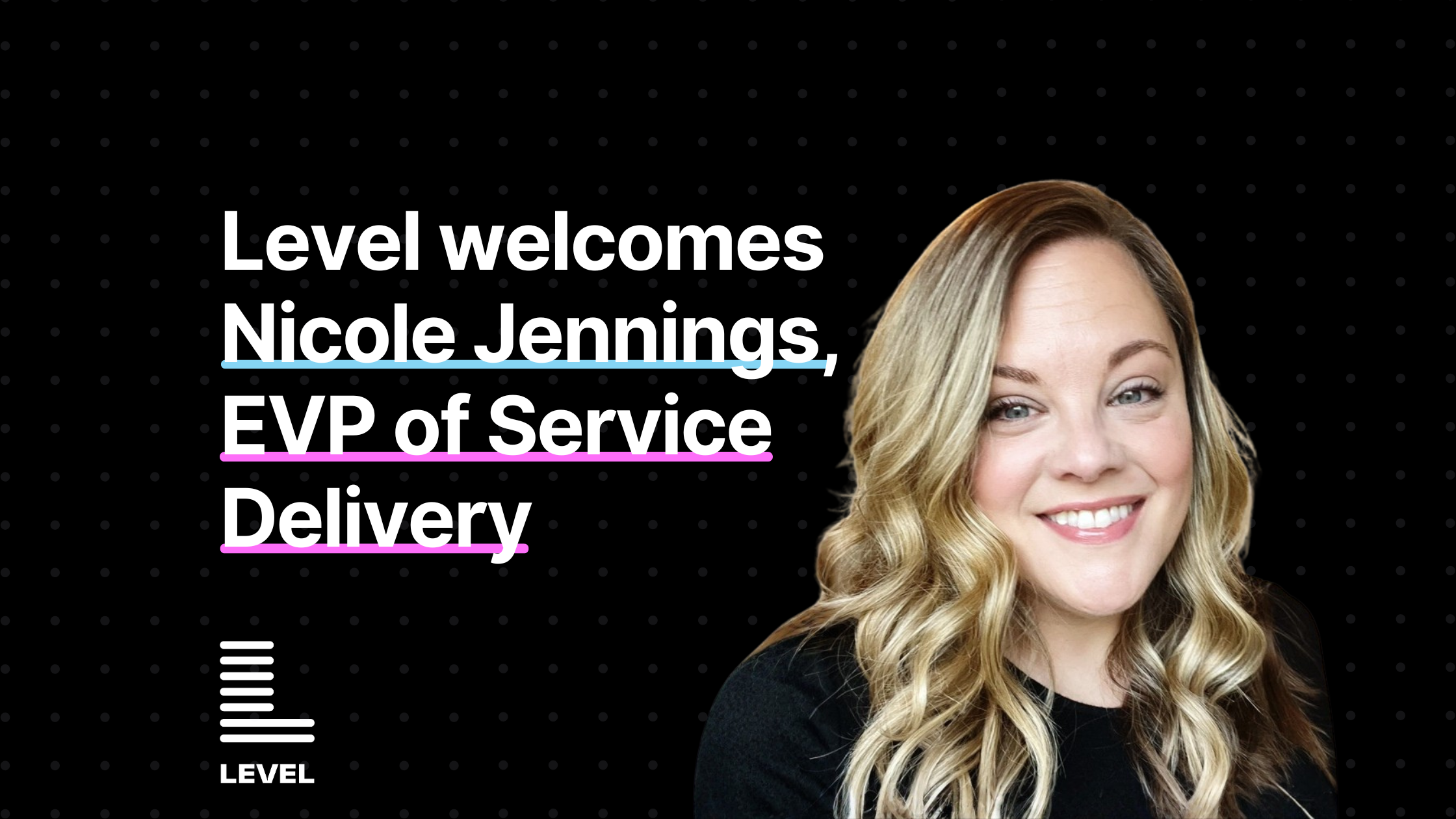SEO has always been a moving target, but the changes we’re seeing today are more fundamental than ever. For years, SEO was seen as a direct lead-generation channel—the more traffic, the more conversions. But that model no longer holds up. Search behavior is evolving, AI is reshaping how content is discovered, and marketers can no longer rely on old attribution models to measure success.
At Level Agency, we believe the role of SEO needs a serious reframe. It’s not just about ranking and driving clicks—it’s about how SEO fits into a broader digital marketing strategy.
Our SEO Director, Stacey Heubeck, has been at the forefront of these conversations, helping our team rethink how we measure, integrate, and execute SEO to drive real business outcomes. In this article, Stacey shares her perspective on the future of SEO and how we’re making it work for our clients at this critical inflection point in digital media.

Measuring SEO: Why traditional metrics don’t tell the full story
In the past, SEO was measured in silos—rankings, organic traffic, and direct attribution to leads or sales. But the truth is, buyers don’t operate in silos. They don’t land on your website once and immediately convert. Instead, they engage with 5-10 touchpoints across multiple channels and many days before making a decision.
So, if SEO isn’t just about ranking and traffic, how do we measure its impact? The answer lies in looking at the bigger picture:
- Overall revenue lift: Instead of obsessing over first- or last-click attribution, we focus on how organic search contributes to total pipeline and revenue growth.
- Branded search growth: The best SEO strategies generate demand, not just capture it. If more people are searching for your brand by name, SEO is working.
- Organic-assisted conversions: Organic search plays a critical role in the research phase of the buyer journey. Even if it’s not the final touchpoint, it often influences the decision to convert later on.
SEO isn’t about getting credit for a single conversion—it’s about making sure your brand is present throughout the entire decision-making process.
How SEO and paid media work together
One of the biggest mistakes marketers make is treating SEO and paid media as separate entities. The reality? They’re two sides of the same coin. When SEO and paid media work together, brands create a search presence that’s both dominant and cost-effective.
Here’s how we integrate them:
- Paid Data Informs SEO Strategy: PPC campaigns provide instant insights into which keywords drive conversions. We use that data to refine SEO content strategies, ensuring we’re focusing on search terms that actually generate results.
- SEO Extends the Life of Paid Media: Paid ads can drive immediate results, but they disappear when the budget runs out. SEO ensures that even after a campaign ends, the brand remains visible in search.
- Retargeting SEO Visitors: Many organic visitors are in research mode. Paid campaigns can nurture these users with remarketing ads, keeping them engaged until they’re ready to convert.
- Consistent Messaging Across Channels: When SEO and paid media align, users get a seamless experience across search results, landing pages, and ads—reinforcing trust and credibility.
The goal isn’t to choose between SEO and paid media—it’s to make them work together in a way that amplifies performance across the entire funnel.
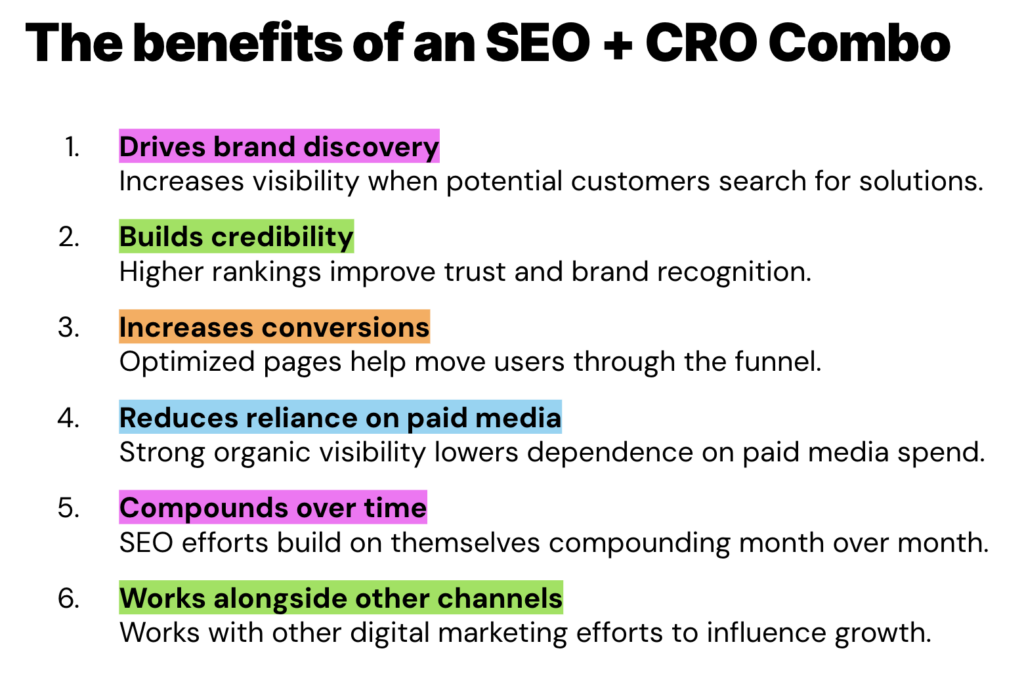
The 5 must-haves for SEO that actually moves the needle
Now that we’ve covered how SEO fits into a broader strategy, let’s talk about execution. What actually works? What should companies focus on to ensure SEO is driving meaningful business results? At Level Agency, these are our non-negotiables for a high-impact SEO program.
- Bottom-of-the-Funnel Optimization The biggest missed opportunity in SEO is neglecting non-branded, high-intent keywords on critical conversion pages. If your product and pricing pages aren’t optimized for relevant searches, you’re losing potential customers who are ready to buy.
- Intent-Driven Content, Not Just Keywords SEO isn’t just about stuffing pages with keywords anymore. We go beyond keyword volume and look at audience pain points. What are prospects actually asking? What concerns do they have? Platforms like Reddit and competitor content analysis help us uncover real, actionable insights.
- SEO as Conversion Rate Optimization (CRO) Traffic without conversions is useless. That’s why SEO and CRO go hand in hand. Testing landing pages, refining messaging, and improving UX can turn organic visitors into customers—without just driving more traffic for the sake of it.
- AI-Optimized Content Strategy AI is transforming SEO in two ways: search behavior and content production. At Level, we leverage AI to enhance content ideation, structure, and production efficiency while ensuring human oversight keeps quality high.
- A Performance-Driven Mindset SEO isn’t just about ranking for vanity metrics. The best programs measure success by revenue impact. We focus on full-funnel marketing, shortening sales cycles, and improving lead quality rather than chasing traffic alone.
The future of SEO at Level Agency
As a performance marketing agency, we’re evolving our SEO strategy to be more closely aligned with conversion optimization and paid media. We’re moving beyond the outdated SEO playbook and building an approach that delivers measurable business impact.
Here’s what that looks like:
- We’re shifting towards an integrated growth strategy that combines SEO, CRO, and content strategy to maximize total digital performance.
- We’re embracing multi-channel measurement, evaluating SEO’s impact on direct, referral, and paid performance—not just organic traffic in isolation.
- We’re helping clients make the mental shift from channel-specific ROI to holistic marketing ROI, ensuring they see the bigger picture.
The bottom line? SEO isn’t just about rankings anymore. It’s about how organic search fits into a full-funnel digital strategy. At Level Agency, we’re leading the charge in rethinking SEO, ensuring it drives real business outcomes—not just traffic.



